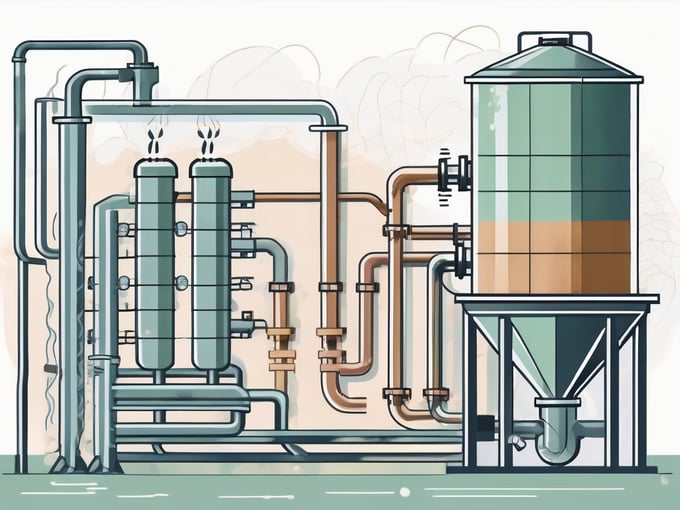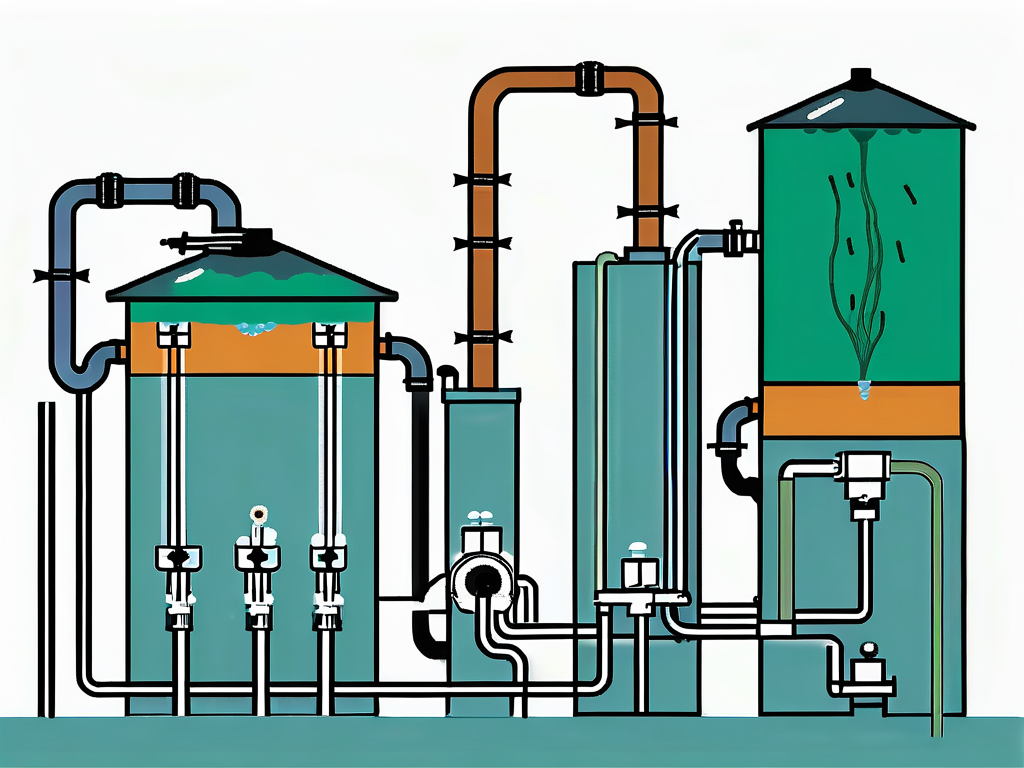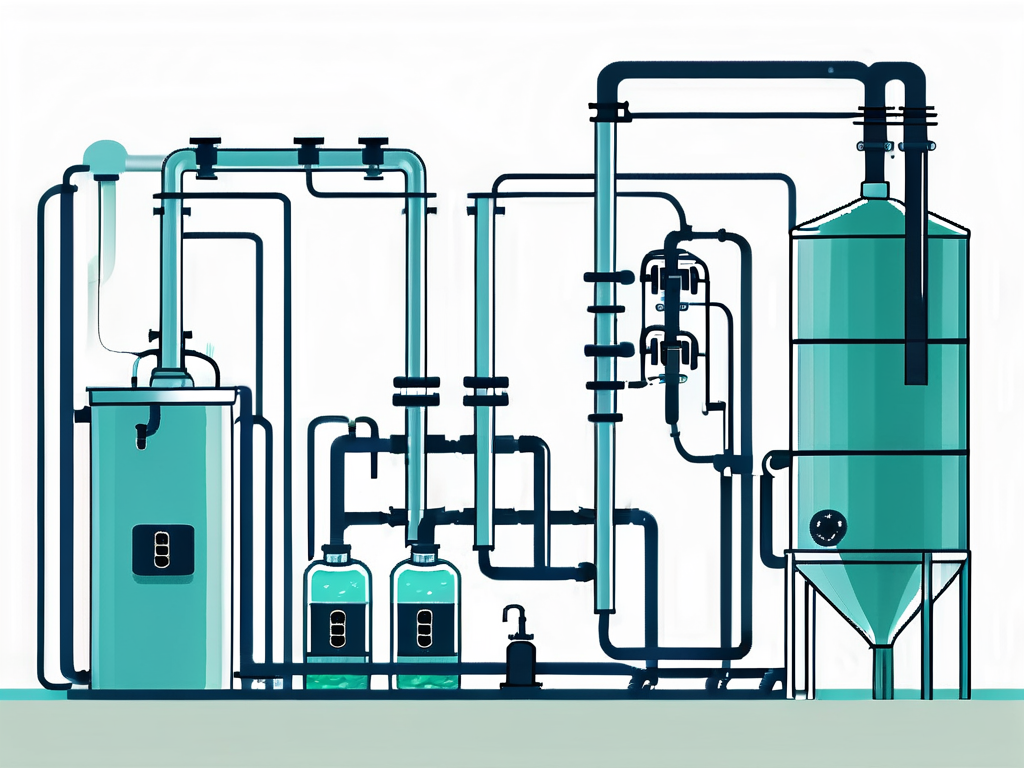
Vermifilter: Wastewater Treatment Explained
The vermifilter, a revolutionary technique in wastewater treatment, employs the use of earthworms and microorganisms to effectively and efficiently treat wastewater. This method is gaining traction due to its eco-friendly nature and cost-effectiveness, especially in regions with limited resources. This article provides an in-depth understanding of vermifilters, their working principles, benefits, and applications in wastewater treatment.
Wastewater treatment is a critical process that ensures the safe disposal of waste and the protection of water resources. Traditional methods of wastewater treatment often involve complex processes and high energy consumption. However, the advent of vermifilters has introduced a sustainable and energy-efficient way to treat wastewater, making it an attractive alternative for many.
Understanding Vermifilters
Vermifilters, or vermicomposting filters, are a type of biofilter that use earthworms and beneficial microorganisms to treat wastewater. The term 'vermi' is derived from the Latin word 'vermis', which means worm. These filters are designed to create an optimal environment for earthworms and microorganisms to thrive and break down waste materials.
Earthworms play a crucial role in the vermifilter system. They consume organic matter in the wastewater, breaking it down into simpler compounds. As the worms move through the filter medium, they create channels that enhance the aeration and circulation of wastewater, facilitating the breakdown of organic matter by aerobic bacteria.
Components of a Vermifilter
A typical vermifilter system consists of several key components: the filter medium, earthworms, microorganisms, and the wastewater feed. The filter medium, usually made of organic materials like straw, compost, or coir, provides a habitat for the earthworms and microorganisms. It also serves as a physical filter, trapping solid particles from the wastewater.
The earthworms in the vermifilter are usually species that are tolerant of wet conditions and can consume a large amount of organic matter. These worms ingest the organic waste in the wastewater, breaking it down in their gut and excreting it as vermicast, a nutrient-rich compost. The microorganisms, which include bacteria, fungi, and protozoa, further decompose the organic matter and convert it into simpler compounds.
Working Principle of a Vermifilter
The operation of a vermifilter involves a series of biological and physical processes. The wastewater is first introduced into the filter medium, where solid particles are trapped. The earthworms then consume the organic matter in the wastewater, breaking it down into simpler compounds. The movement of the worms also helps to aerate the filter medium, promoting the growth of aerobic bacteria.
The aerobic bacteria in the vermifilter decompose the organic matter further, converting it into carbon dioxide, water, and other simpler compounds. The treated wastewater then passes through the filter medium and is collected at the bottom of the filter. The result is a significantly reduced organic load in the wastewater, making it safer for disposal or reuse.
Benefits of Vermifilters
Vermifilters offer several advantages over traditional wastewater treatment methods. Firstly, they are energy-efficient, requiring no electricity for operation. This makes them a cost-effective solution for wastewater treatment, especially in regions with limited resources.

Secondly, vermifilters are environmentally friendly. They produce vermicast, a nutrient-rich compost that can be used as a soil conditioner. This not only reduces the amount of waste that needs to be disposed of, but also contributes to sustainable agriculture. Furthermore, vermifilters do not produce harmful by-products, making them a safe choice for wastewater treatment.
Energy Efficiency
Vermifilters operate without the need for electricity, making them an energy-efficient solution for wastewater treatment. Traditional wastewater treatment methods often require a significant amount of energy for aeration and other processes. However, in a vermifilter, the movement of the earthworms provides natural aeration, eliminating the need for energy-intensive aeration processes.
Furthermore, vermifilters do not require mechanical parts or complex machinery, reducing the need for maintenance and the associated costs. This makes vermifilters a cost-effective solution for wastewater treatment, especially in areas where resources are limited.
Environmental Impact
Vermifilters have a low environmental impact compared to traditional wastewater treatment methods. They produce vermicast, a nutrient-rich compost that can be used as a soil conditioner. This not only reduces the amount of waste that needs to be disposed of, but also contributes to sustainable agriculture.
Furthermore, vermifilters do not produce harmful by-products, making them a safe choice for wastewater treatment. The treated wastewater from a vermifilter is typically low in organic matter and nutrients, reducing the risk of water pollution. This makes vermifilters an environmentally friendly solution for wastewater treatment.
Applications of Vermifilters
Vermifilters have a wide range of applications in wastewater treatment. They can be used to treat domestic wastewater, agricultural runoff, and industrial wastewater. The treated wastewater from a vermifilter can be safely discharged into the environment or reused for irrigation and other purposes.

Vermifilters are also being used in decentralized wastewater treatment systems, where they provide a cost-effective and sustainable solution for treating wastewater at the source. This not only reduces the load on centralized wastewater treatment plants, but also reduces the need for extensive sewer networks.
Domestic Wastewater Treatment
Vermifilters are an effective solution for treating domestic wastewater, which includes wastewater from households and small communities. Domestic wastewater typically contains a high amount of organic matter, which can be effectively broken down by the earthworms and microorganisms in a vermifilter.
The treated wastewater from a vermifilter can be safely discharged into the environment or reused for irrigation and other purposes. This not only reduces the load on centralized wastewater treatment plants, but also contributes to water conservation.
Industrial Wastewater Treatment
Vermifilters can also be used to treat industrial wastewater, which often contains a variety of pollutants. The earthworms and microorganisms in a vermifilter can break down a wide range of organic compounds, making vermifilters a versatile solution for industrial wastewater treatment.
Furthermore, the vermicast produced by a vermifilter can be used as a soil conditioner, contributing to sustainable agriculture. This makes vermifilters not only an effective solution for wastewater treatment, but also a contributor to circular economy practices.
Challenges and Future Prospects
Despite the many benefits of vermifilters, there are also challenges that need to be addressed. One of the main challenges is the need for regular maintenance to ensure the health of the earthworms and the efficiency of the filter. Furthermore, the performance of a vermifilter can be affected by factors such as temperature, pH, and the type and concentration of pollutants in the wastewater.
However, ongoing research and development efforts are aimed at improving the performance and reliability of vermifilters. New materials and designs are being explored to enhance the efficiency of vermifilters and extend their applications. With the increasing focus on sustainable and energy-efficient solutions for wastewater treatment, the future prospects for vermifilters look promising.
Maintenance and Operation Challenges
Regular maintenance is crucial for the efficient operation of a vermifilter. This includes monitoring the health of the earthworms, replacing the filter medium when necessary, and adjusting the wastewater feed to ensure optimal conditions for the earthworms and microorganisms. Failure to maintain a vermifilter properly can lead to a decrease in performance and a shorter lifespan for the filter.
Furthermore, the performance of a vermifilter can be affected by factors such as temperature, pH, and the type and concentration of pollutants in the wastewater. These factors need to be carefully managed to ensure the efficient operation of a vermifilter.
Future Prospects
Despite the challenges, the future prospects for vermifilters look promising. Ongoing research and development efforts are aimed at improving the performance and reliability of vermifilters. New materials and designs are being explored to enhance the efficiency of vermifilters and extend their applications.
With the increasing focus on sustainable and energy-efficient solutions for wastewater treatment, vermifilters are likely to gain more traction in the coming years. They offer a viable alternative to traditional wastewater treatment methods, contributing to the protection of water resources and the promotion of sustainable development.



